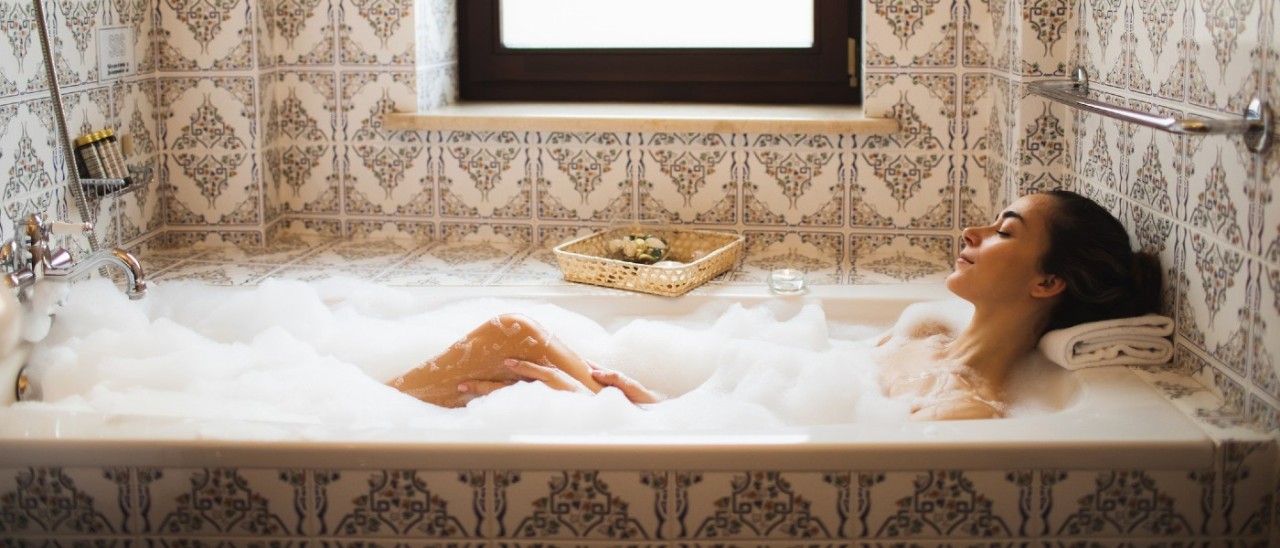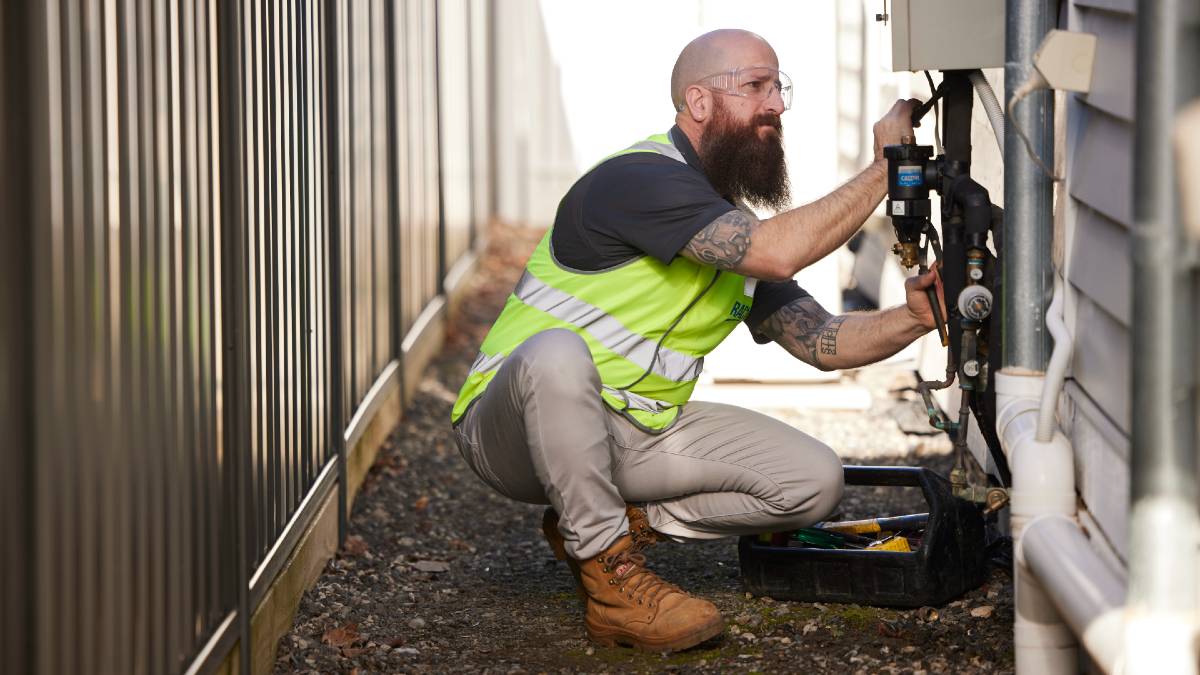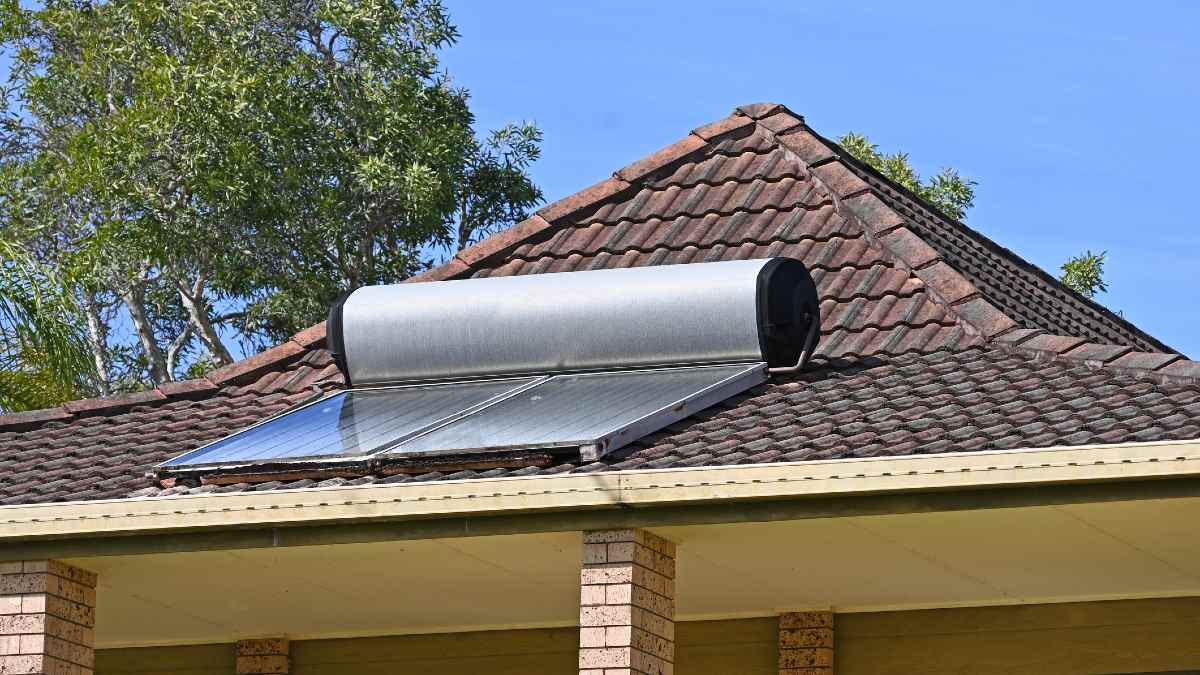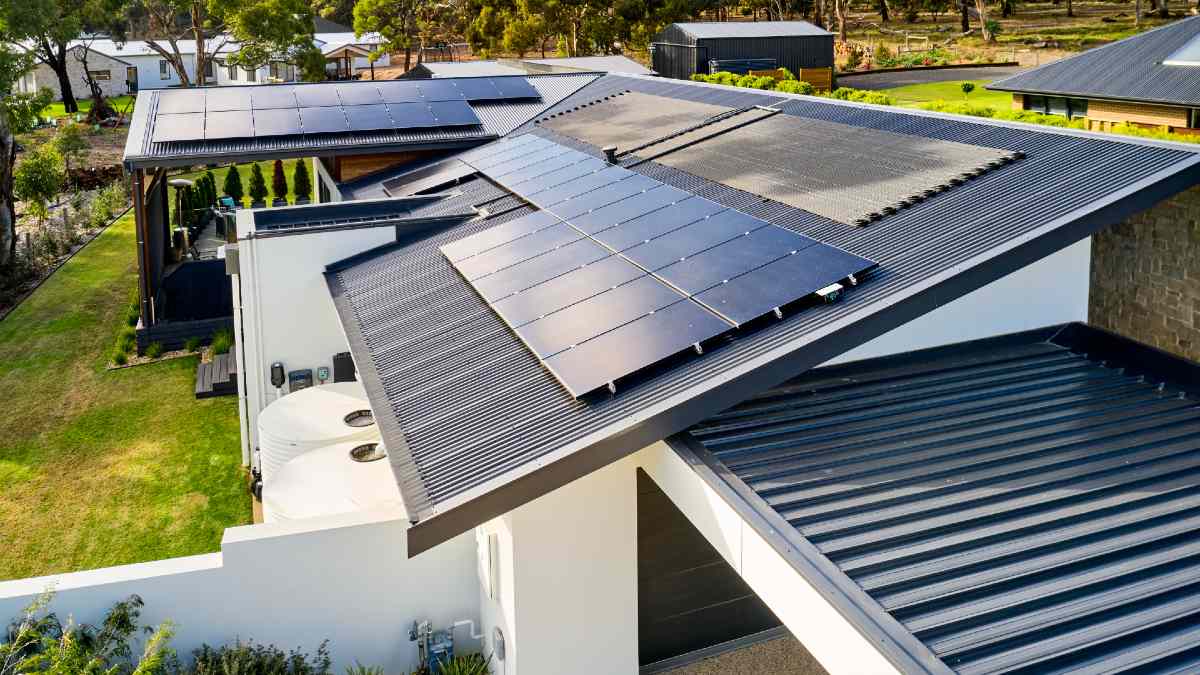Use these energy saving tips to help reduce electricity consumption (and your bills) when renting a house or apartment.
Guide to choosing the right hot water system for your home

Discover the pros and cons of gas, solar, electric and heat-pump hot water systems. This guide can help you decide on the right system for your home so you can save energy and cut bills.
Hot water is an essential service for modern living but it comes at a cost. Sustainability Victoria reports that hot water accounts for 16 per cent of the average Victorian houshold's energy costs, though it can be as high as 30 per cent. It's a significant sum that can be greatly influenced by the type of hot water system you have.
It’s easy to ignore your hot water system until it breaks down, forcing a quick replacement with little time to research - even though the choice can affect your energy bills for years.
Whether you’re considering a heat pump, solar model, or a more conventional gas or electric system, this guide will help answer your key questions so you can confidently choose the best hot water system for your needs.
What types of hot water systems are available in Australia?
Heat pump hot water systems
Heat pump hot water systems are highly efficient, using up to 75 per cent less electricity compared to a conventional electric hot water system. That’s because heat pump systems extract heat from the air to warm your water, rather than generating heat directly. In cold locations where temperatures regularly drop below 5°C, you will need a special heat pump water heater that is designed to work in frosty, snowy conditions.
Heat pump hot water systems can cost more upfront to purchase and install, but there are rebates available through Solar Victoria, which can reduce energy bills over the long term. If you have solar panels installed on your home, a heat pump system can also function like a battery, using your solar power to heat the water when the sun is shining and storing it for use when you need it later on, reducing your bills even further.
A heat pump has little risk of overheating in hot weather because its compressor switches off once the stored water reaches the right temperature. Since a fan is needed to pull outside air into the heat pump’s evaporator, they can produce some noise, so ideally they should be installed away from bedrooms.
Pros: Highly efficient, works great with solar PV systems, low running costs, rebates available.
Cons: Higher upfront costs, produce some noise (similiar to an air conditioning unit), can run out of hot water and take some time to reheat the tank.
Related reading: What is a solar battery and how does it work?
Solar hot water systems (including boosted models)
Solar hot water systems use energy from solar panels or collectors to heat water that flows into an insulated storage tank placed on the roof or the ground. In colder areas or during winter, solar hot water systems may need a gas or electric booster to heat the water. While they are generally expensive to purchase and install, Sustainability Victoria reports they use at least 60 per cent less energy than a conventional gas or electric hot water system.
Importantly, you do not need a solar PV system (e.g. home solar power) to have a solar hot water heater. Solar hot water systems take up less space and exist independently from solar PV systems. This means that homes that aren't suitable for solar panels (such as some units and townhouses) can still benefit from solar hot water.
Pros: Very efficient, works for properties unsuitable for solar pv systems, gas or electric booster available, rebates available.
Cons: Higher upfront costs, energy savings potentially reduced if booster needs to be used a lot.
Gas hot water systems
Until recently, high-efficiency natural gas hot water systems were considered the most economical type of water heater. Heat pump hot water systems, which run on electricity, are now much more efficient.
Gas-powered hot water systems should generally be reserved for instantaneous systems. Storage systems rely on a gas flame to heat the tank, and fire safety regulations require the base to remain uninsulated. This lack of insulation means that gas storage systems will experience higher heat loss compared to other hot water systems.
Gas hot water systems have a medium to high purchase, installation and running cost.
Pros: Good for instantaneous systems, formerly the cheapest type of hot water system to run.
Cons: Gas prices are increasing, gas appliances are being phased out, and no longer as efficient as other hot water systems.
Are gas hot water systems being phased out?
As of January 2027, all new residential and commercial builds must be all-electric, including hot water systems. From March 2027, owner-occupiers who have their gas hot water system irreparably break must replace it with an alternative electric system.
From the same date, rental providers must replace any irreparably broken hot water systems in their rental properties with heat pump hot water systems.
Read more: The minimum standards for rental properties in Victoria.
Electric hot water systems
Resistive element electric hot water systems are one of the most common hot water systems in Australia according to the DCCEEW. That may be because they are the cheapest hot water system to purchase and install. But unless they are powered by a solar PV system, electric hot water systems are the most expensive to run.
Pros: Cheapest upfront costs, potential to be powered by a rooftop solar PV system.
Cons: Most expensive to run if not connect to a solar PV system.
| Hot water system | ||
|---|---|---|
|
Heat pump (no solar PV) |
$3,500-$6,000 |
$230 |
|
Heat pump (w/ solar PV) |
$3,500-$6,000 (plus cost of solar PV if not already installed) |
$105-$120 |
|
Solar (gas boosted) |
$4,000-$8,000 |
$185 |
|
Solar (electric boosted) |
$4,000-$8,000 |
$285 |
|
Gas (storage) |
$1,200-$3,500 |
$645 |
|
Electric (storage) |
$600-$3,000 |
$840 |
*Data from Sustainability Victoria, based on 120L daily use and hot water systems with the highest available efficiency rating for its category. Annual energy costs are based on peak tariff usage.

As of 2027, gas hot water systems that fail and can't be fixed must be replaced with an electric alternative, such as a heat pump.
Is a storage or instantaneous hot water system better?
There are two types of hot water systems: storage or instantaneous systems.
Storage systems
Hot water storage systems store water in an insulated tank, always keeping the water hot and ready for use. These tanks are usually made of copper, glass-lined steel, or stainless steel to help retain warmth, although there will be some heat loss from the storage tank and its pipes. Storage water heaters can be powered by gas, electricity, solar or heat pump.
Instantaneous (continuous flow) systems
Instantaneous hot water systems only heat water as you require it, so there’s no need for a storage tank. They can be powered by gas (natural or LPG) or electricity, and cannot run out of hot water since water is only heated as it is used. That said, using small and frequent amounts of hot water when using an instantaneous system can result in energy loss from continuous water heating and cooling.

Solar hot water systems work separately to solar PV systems, meaning they can be used by some homes unsuited to solar panels. Image: Getty
What is the most energy-efficient type of hot water system?
Sustainability Victoria reports that an electric heat pump hot water system is the most efficient hot water system on the market, using up to 75 per cent less electricity than a conventional electric hot water system.
Solar hot water systems are also very energy-efficient, using at least 60 per cent less energy than gas or electric models.
Keep in mind that water heaters sold in Australia do not currently require Energy Rating Labels, unlike home appliances like refrigerators, washing machines and dryers.
Find out more: Which energy-efficient appliances are worth spending money for?
Which hot water system should I get for my home?
In general, a heat pump hot water system is best if you want to save money in the long run, especially if you have solar panels (or are planning to get solar panels). Solar and boosted solar hot water systems are also a great option for energy efficiency, especially for homes unsuitable to rooftop solar systems.
You should do your own research, however, by talking to suppliers about which system will best suit your home.
When deciding on a hot water system for your home, think about purchase costs (including rebates) versus running costs, where the heater can be installed, and which energy source you can use, such as solar energy.

Heat pumps can work hand-in-hand with a rooftop solar PV system to reap the most energy efficiency and savings. Image: Matt Harvey
What size hot water system does my home need?
Which size hot water system suits your home depends on the number of people living in your home, plus your consumption patterns. For example, will you be running the washing machine and dishwasher at the same time, or do you have multiple showers that will be used at the same time?
According to Sustainability Victoria, the average daily hot water use for households is as follows:
- One person household: 50 litres
- Two person household: 90 litres
- Three person houeshold: 120 litres
- Four person household: 150 litres
Smaller households may find instantaneous hot water systems more practical than storage systems, while larger households may need a storage system to keep up with multiple hot water outlets being turned on at the same time.
How do I install a hot water system?
A licensed installer like RACV Solar can safely install a heat pump hot water system in your home at the same time as a solar panel system. Ask your installer questions about which energy source (gas, electric or solar) is available to you, which system will best suit your climate, and the purchase costs versus running costs of different systems.
Are there any hot water system rebates in Victoria?
Solar Victoria’s hot water rebate offers a rebate of up to $1,400 on eligible solar hot water systems and heat pump hot water systems, if you meet the following criteria:
you are the owner-occupier of an existing property, valued under $3 million, where the system is to be installed
your household’s combined taxable income is less than $210,000 per year
the hot water system being replaced is at least three years old from date of purchase
you and/or the property address have not already received a hot water rebate or solar battery rebate under the Solar Homes Program
to be eligible for the full $1,400 rebate you must select a locally made hot water system
Apply for the rebate through the hot water rebate portal and wait to receive confirmation of approval by Solar Victoria before you arrange the installation.
If you're getting a solar panel system installed, find out if you can get a hot water heat pump put in at the time.


